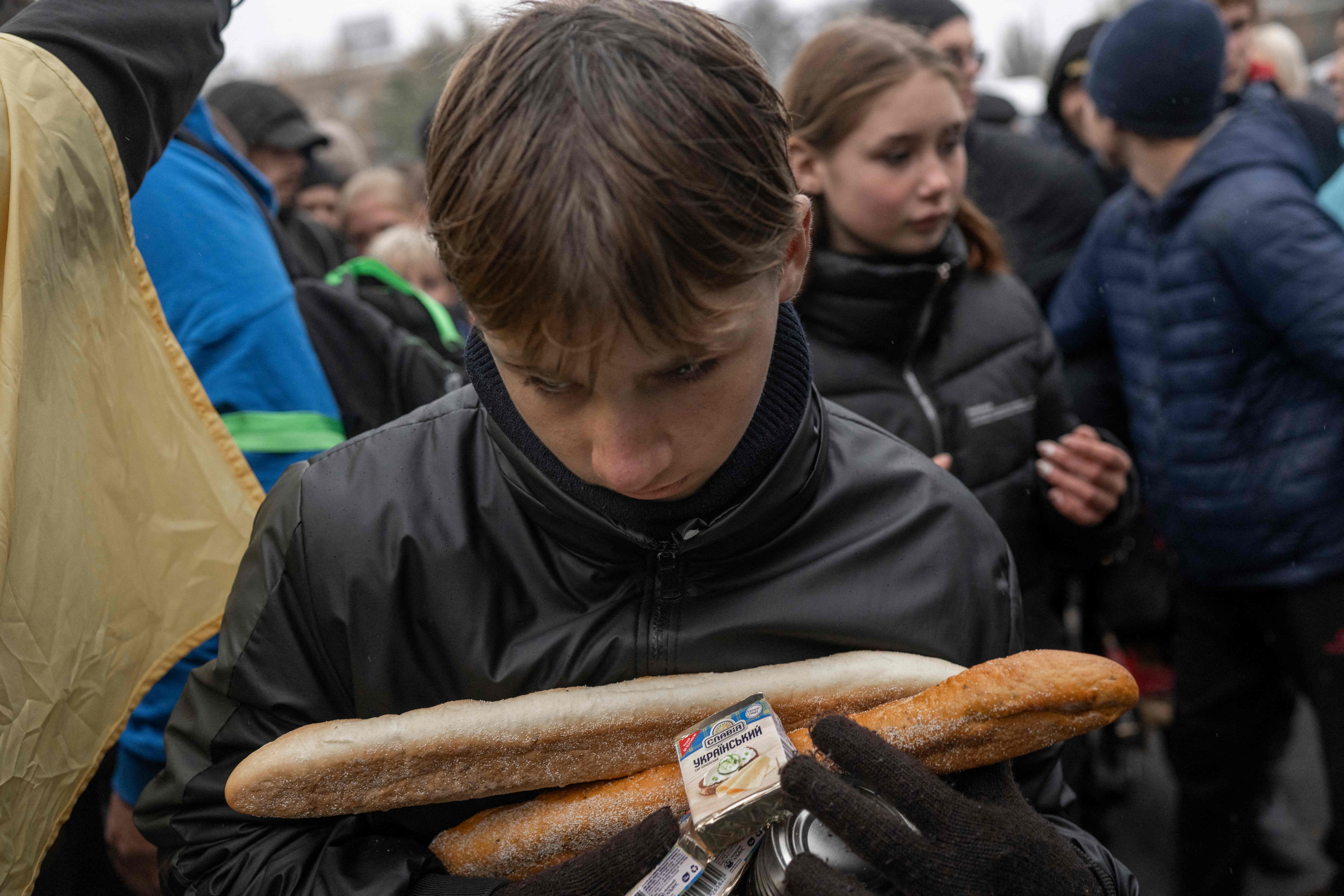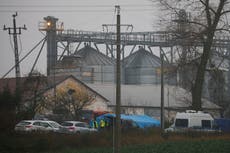Putin’s forces ‘dig in 60km behind Ukraine front line’ as Russia fears more losses
It comes as 10 million Ukrainians left without power as snowfall covers Kyiv


Russian forces are digging new trenches some 60km back from the current front line in Ukraine, according to the Ministry of Defence (MoD), suggesting the Kremlin is bracing for further Ukrainian advances.
After retreating from Kherson – the only regional capital captured during the war so far – Russia continues to lose ground and its forces are focussing on reorganising, preparing and refitting defences across Ukraine, the MoD said in its latest intelligence update.
Vladimir Putin’s forces have constructed “new trench systems” near the border of Crimea, as well as near the Siverskyi-Donets River between Donetsk and Luhansk Oblast, it said.
“Some of these locations are up to 60km behind the current front line, suggesting that Russian planners are making preparations in case of further major Ukrainian breakthroughs,” it added.
A Russian governor appeared to confirm the British intelligence report by saying that his forces are carrying out work to fortify the Crimean territory, which Mr Putin illegally annexed in 2014.
“Fortification work is being carried out on the territory of Crimea under my control with the aim of guaranteeing the security of all Crimeans,” the Moscow-appointed governor of the region, Sergei Aksyonov, said on social media.
As the first snow of the season fell in Kyiv, 10 million Ukrainians were left without power on Thursday as a fresh wave of Russian bombing raids smashed into energy infrastructure, apartment buildings and an industrial site.
At least four people were killed and more than a dozen wounded in drone and missile strikes around the country, authorities said.

Russia’s defence ministry said on Friday that its strikes in Ukraine the day before were aimed at military and energy infrastructure. It said that it used long-range weapons to hit defence and industrial targets, including “missile manufacturing facilities”, in its daily briefing.
The targeting of civilian energy infrastructure appears to be a key tactic for Russia following multiple setbacks on the battlefield.
Ukrainian authorities said they were working to restore power nationwide after Moscow unleashed what Kyiv said was the heaviest bombardment of civilian infrastructure in the war so far.
Millions of people, in a country with a pre-war population of about 44 million, were left without heating in their homes as snow fell through Thursday morning, meaning more hardships for many.
Those suffering power outages are mainly in the capital Kyiv, western city of Vinnytsia as well as the port city of Odesa in the southwest and Sumy in the northeast.
It comes as investigators in Kherson uncovered 63 bodies bearing signs of torture following the Russian forces’ retreat, Ukraine’s interior minister was quoted as saying.

The Ukrainian authorities also released a video of what was said to be a torture chamber used by Russia in Kherson, a small room in which up to 25 people were kept at a time.
It was alleged that soldiers used electric shocks to secure confessions. Russia has denied its troops deliberately attacked civilians or committed atrocities.
Mass burial sites have been found in other parts of Ukraine previously occupied by Russian troops, including some with civilian bodies showing signs of torture.
The central square of Kherson city was a frenetic melee of humanitarian aid queues and displays of patriotism on Thursday as residents celebrated their liberation from months of Russian occupation following Ukraine’s counteroffensive this month, but the mood was also one of deep uncertainty.
“We’re fine, but we don’t know what to expect. Nothing is over yet. On that (east) bank of the river, the (Russian) forces are gathering. On this side, they are gathering. We are in the middle,” said Ihor, 48, an unemployed builder.
Additional reporting by agencies
Join our commenting forum
Join thought-provoking conversations, follow other Independent readers and see their replies
Comments


Bookmark popover
Removed from bookmarks